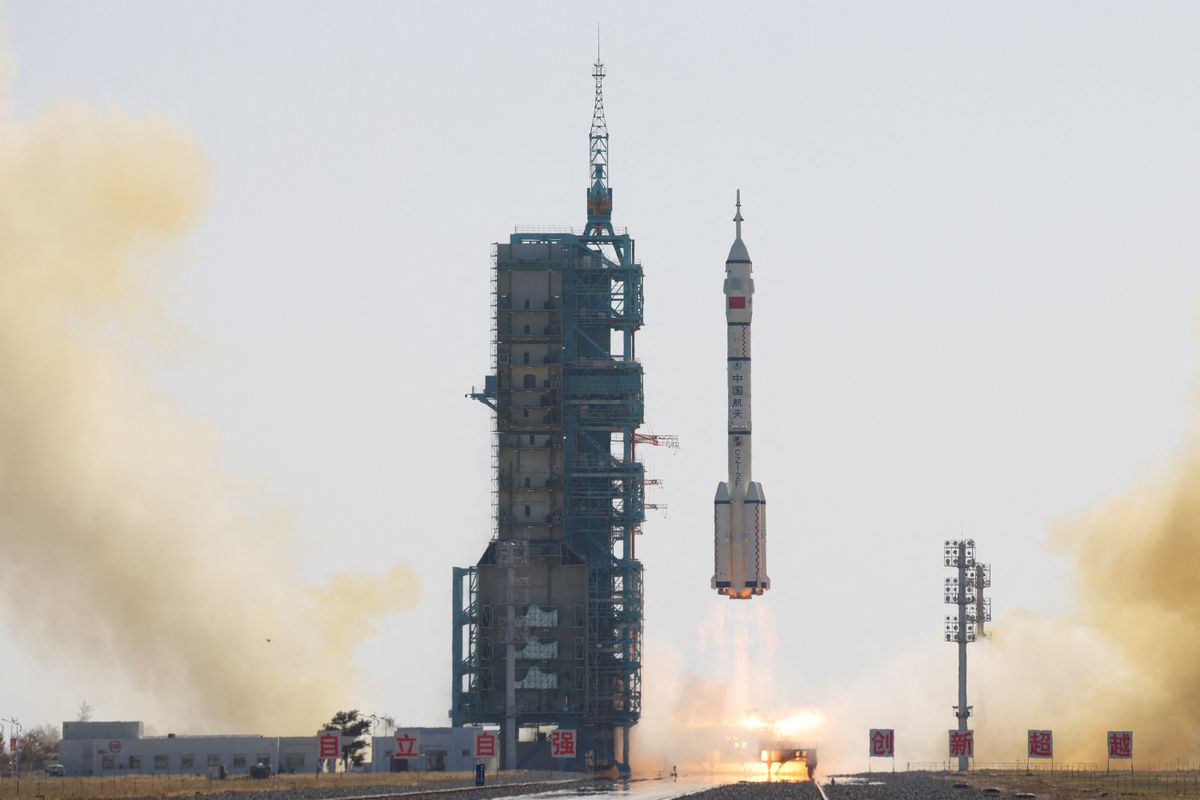China’s looking to private companies to boost its space program
The China Manned Space Agency (CMSA) is considering collaborating with private-sector companies on its upcoming space missions.

A few minutes every morning is all you need.
Stay up to date on the world's Headlines and Human Stories. It's fun, it's factual, it's fluff-free.
The backstory: In 2011, the US made a big move that impacted China's role in the International Space Station (ISS). It passed a law (known as the Wolf Amendment) citing national security concerns, essentially banning NASA from working with China on space missions. But China kept launching its own missions and had a big goal in mind – building its own space station, named Tiangong, meaning "Celestial Palace" in Chinese. Just last week, China launched Shenzhou-17, a spacecraft carrying a fresh trio of astronauts to the Tiangong space station.
Tiangong is a little smaller than the ISS, with about 40% of its mass. But the China Academy of Space Technology (CAST), China's principal space contractor, announced plans last month to boost Tiangong's size by adding six modules. This could potentially make it an alternative to the ISS for astronauts worldwide, especially as the ISS is nearing the end of its lifespan.
More recently: In the past decade, China's space sector opened its doors to private investors. For example, a startup called iSpace, or Beijing’s Interstellar Glory Space Technology, became the first private Chinese company to launch a rocket into orbit in 2019.
The development: The China Manned Space Agency (CMSA) is considering collaborating with private-sector companies on its upcoming space missions. Deputy director Lin Xiqiang said in a press briefing a day before the launch of Shenzhou-17 that the CMSA is actively seeking proposals from private rocket companies to help with cargo missions to the Chinese space station. But we don’t really know the exact scale and value of these contracts.
But these contracts from the CMSA could be a major boost for China's space industry, a bit like how NASA supported SpaceX. In 2008, just two years after SpaceX's very first rocket launch, NASA gave it a contract for cargo flights. That collaboration opened the doors for SpaceX to get involved in other big NASA projects like the US$2.9 billion deal in 2021 to put astronauts on the moon.
Key comments:
"To explore the vast cosmos, develop the space industry and build China into a space power is our eternal dream," said China’s President Xi Jinping.
“Through the open bidding, we are pleased to see that China’s private commercial space companies are developing rapidly and growing rapidly and their enthusiasm to participate in manned space missions is also high,” said Lin Xiqiang, China's China Manned Space Agency deputy director.
“Engaging the private sector is definitely going to boost space development in China,” said Lynette Tan, CEO of Space Faculty Pte. “That means more people can come up with ideas and innovation. The same as in the US, which had the private-sector guy Musk changing the ecosystem.”
“President Xi Jinping has declared that China’s ‘Space Dream’ is to overtake all nations and become the leading space power by 2045,” said Christopher Newman, professor of space law and policy at the UK’s Northumbria University. “This all feeds into China’s ambition to be the world’s single science and technology superpower.”




Comments ()